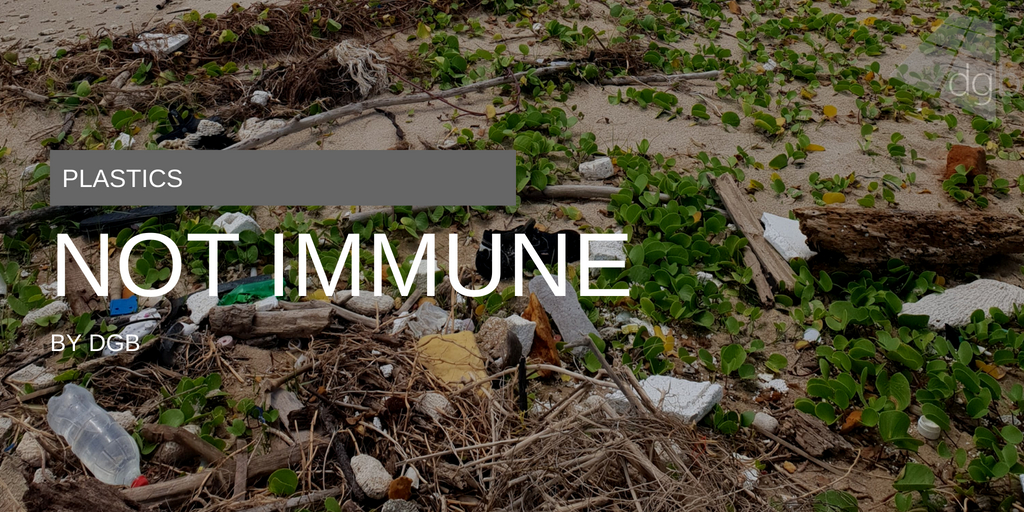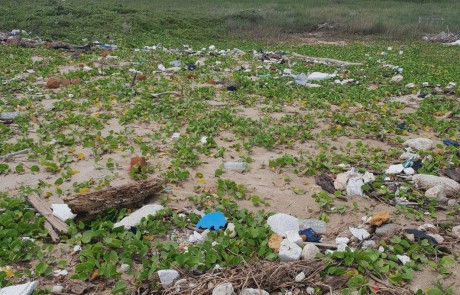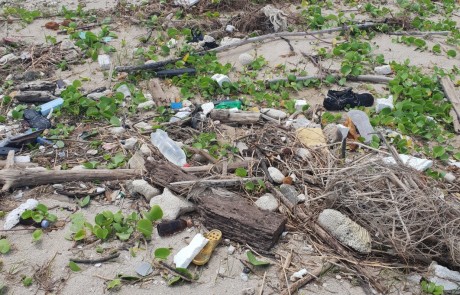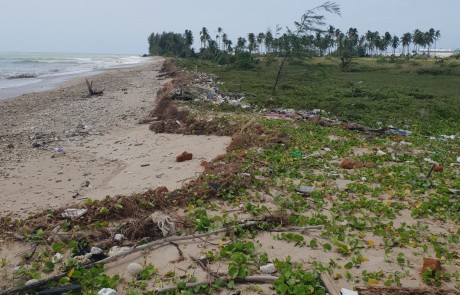This is an opinion piece by DGB
Some of you may have noticed DGB being a bit quiet for the past few weeks. That is down to my wedding and then jetting off to Thailand for an amazing honeymoon. Powering through the jetlag, things will be returning to normal as some sort of normality returns to life at home.
Don’t worry, this won’t be a run down of what we did on our honeymoon, I’ll let the wife do that on Facebook.
What this post is about however is the use of plastic, it’s effects which I saw first hand in what is stunning country (Thailand), and how the window and door industry isn’t going to be immune to the changing attitudes towards plastic.
Social change
I have touched upon this subject before. Programmes like the BBC’s Blue Planet and Sky News’ Ocean Rescue campaign has massively highlighted the damaged humanity continues to do to itself and the planet. We constantly see horrifying images of what should be stunning land and seascapes, as well as wildlife being ruined by plastic. Mostly single use plastics. Bottles, straws, ring packs, food wrapping and so on.
We were walking down the beach beyond the resort we were staying at and it didn’t take long to start seeing what was being washed up:
Some of this was Thai waste. But some of it came from Vietnam, India and other countries. This isn’t the fault of one single country, but all of us. The tides on one part of the world can send garbage to all other parts. It’s this that recent media coverage has been focusing on.
Change has been happening. Far too late mind, but change nonetheless. We are seeing supermarkets ditch plastic from certain products and whole aisles in some cases. Fast food chains and restaurants are ditching plastic straws for paper ones. Social media is full of anti-plastic ideas and sentiment.
With social media being as powerful as it is, this is perhaps one of the most important factors. More often than not, if social media tells us to do something, we generally do it. So if platforms like Twitter and Facebook are encouraging us all to be more aware and be more green, then it’s probably going to happen.
Social media however is a very blunt tool. It’s more likely to encourage to ditch plastics altogether rather than suggest ways of being more environmentally friendly with the material. This is where the danger comes in for the window and door industry. At the least the PVCu part of it.
U for a reason
Just a quick reminder, the U in PVCu stands for unplasticized. That means no plastic. But we all know that almost all customers see PVCu windows as plastic windows, so we can count of that being translated across to social media.
According to Eurocell, who have a big Facebook following, they are already seeing anti-PVCu comments on the platform. No doubt that message is already spreading as anti-plastic sentiment grows.
The industry doesn’t need to go on a fight, more of an education. PVCu as a material could not and should not be wiped out as a material for windows and doors. The industry would never recover from it. It needs to reach out to the general public, across all major platforms, to not only show the benefits of using the material, but also it’s ability to be recycled and be a useful building material for a good couple of hundred years.
What this does do is provide a unique opportunity for the timber and aluminium parts of fenestration to put their foot down and make the most of this open goal. Timber and aluminium are materials that people already know can be easily recycled. Timber also being the material most sustainable in terms of building materials. So the green message is already there, and those parts of the industry can play heavily on that. It wouldn’t surprise me to see federations and bodies from the timber and metals side of things come out and campaign against the use of PVCu in the future.
Don’t bury your head
Anti-plastic is here to stay. No ifs. No buts. We’re at a tipping point of change. So, if we as an industry think that this is just a phase and it will go away eventually, think again. It’s not. We cannot bury heads in the sand (where there’s probably a ton of plastic) and hope that it all works out in the end.
There is a growing chance, again thanks to social media and misinformation, that home owners could start to ditch PVCu in the future, which would only cause severe damage to the sector. The time to be proactive is now. And in a number of different ways.
I have already mentioned an information campaign. We have to get out there to explain the facts to home owners about PVCu, it’s benefits as a building materials, it’s recyclable properties and overall the integral part it plays in UK construction as a whole. We need to get it out on social media, via installers, via the MSM.
Not only that, the whole PVCu sector has to take concrete steps forward into making their products much more sustainable and environmentally friendly. A number of systems companies already offer products that are at least partly, if not all, made from recycled product. But I would hazard a guess that a mass majority of the PVCu sector still uses virgin product. This has to change, whether you like it or not. As part of the wider effort, it’s the products themselves which have to be seen to be sustainable and reusable.
I know some won’t like the idea of advertising a recycled PVCu window or door to home owners. But it doesn’t matter what the industry thinks. It matters what the home owner thinks and wants. Admittedly, at our place we haven’t had many requests for a recycled product. That doesn’t mean however the demand isn’t out there, or that it won’t grow over the coming years. The social media comments Eurocell have already shown me prove that attitudes towards PVCu products are already on the turn.
It’s time to act now, get our house in order, and prove that in the decades to come PVCu should remain a window and door product home owners should still want to use.
To get weekly updates from DGB sent to your inbox, enter your email address in the space below to subscribe:
By subscribing you agree to DGB sending you weekly email updates with all published content on this website, as well as any major updates to the services being run on DGB. Your data is never passed on to third parties or used by external advertising companies. Your data is protected and stored on secure servers run by Fivenines UK Ltd.











Having recently returned from a few weeks abroad, I must say that I was genuinely shocked by the amount of plastic in the ocean. It wasn’t so much the large debris as the small particles that were particularly evident.
I have spent many years defending PVCu profiles but I anticipate an increasingly difficult time for the material and plastics in general.